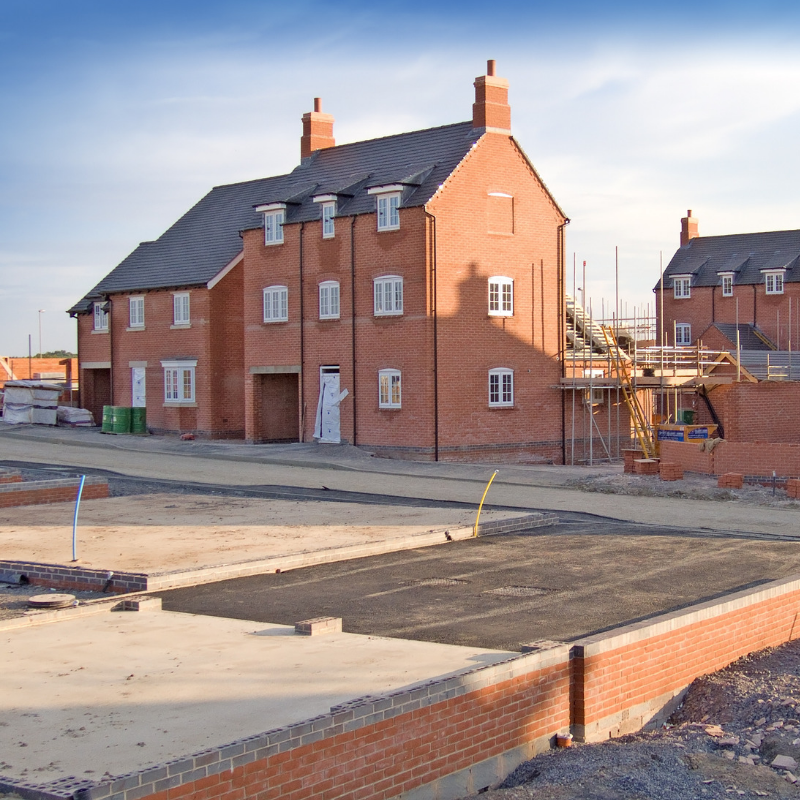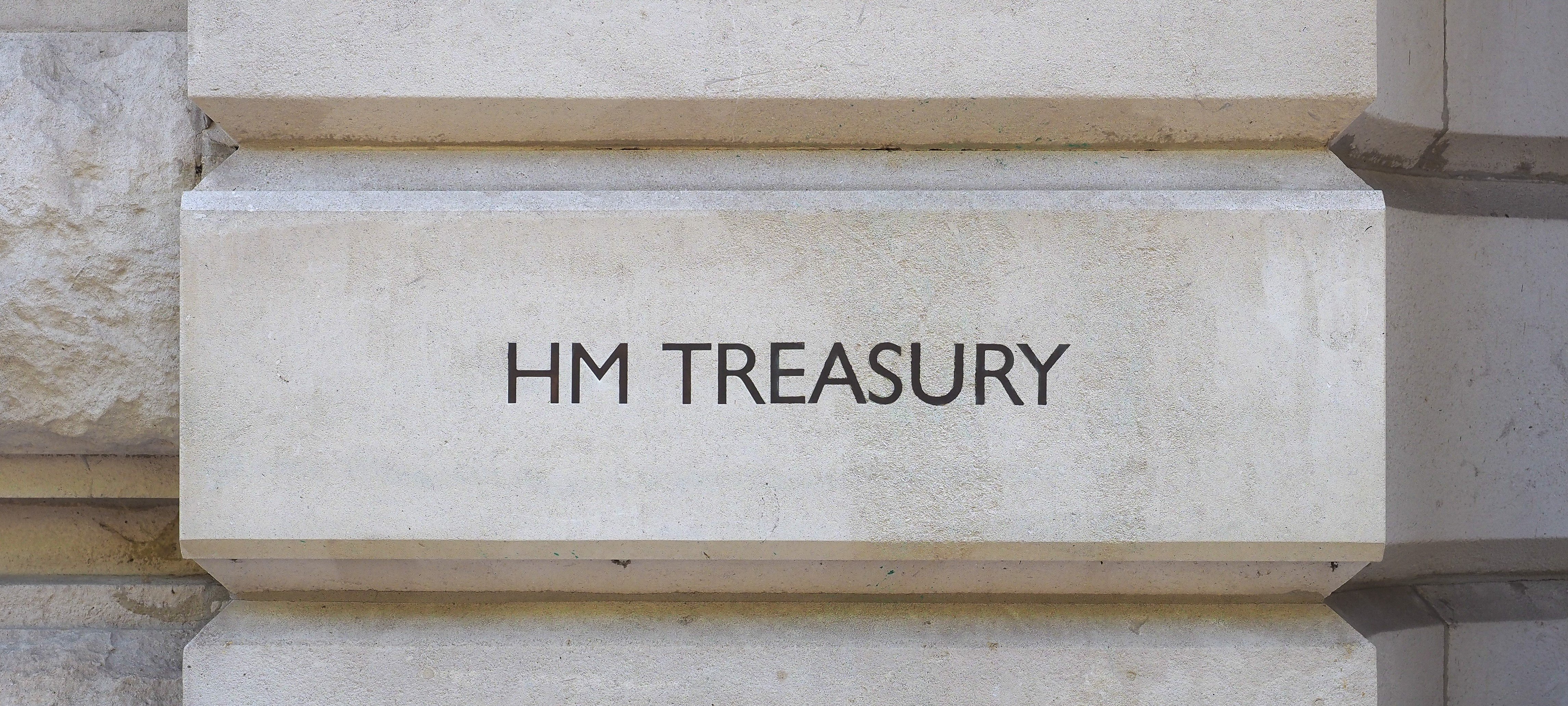How can I invest in residential property alongside developers?
What was once an asset class reserved for those with large amounts of capital, property has aways been a popular and favourable asset, but it was traditionally out of the reach of many investors.
With considerable changes in recent years, the routes into property today are more vast and varied than they ever have been - and as a result, investors have a huge array of options open to them, with choices available almost regardless of investment portfolio requirements.
Having talked about the wide variety of property investment opportunities available, we've discussed investing alongside the builders and developers into residential property developments via joint ventures in-depth.
Offering investors the ability to get involved in the residential property market and directly fund a development by investing directly alongside the property developers, there are a number of questions we discuss regularly about the entire joint venture process.
What is a property joint venture?
A joint venture (also known simply as a JV) has traditionally been one of the best ways to invest in residential property because it provides a way of bringing together a mix of different disciplines and expertise, as well as significant capital.
An arrangement between two or more partners to co-operate in order to achieve a common objective, joint ventures are commonly used in property and development and can provide significant value for all the parties involved.
Enabling the sharing and spreading of risks with other parties, they can help unlock sites, access finance and the use of specialist skills.
Being a tried and tested structure, which is used to finance anything from small-scale developments by independent builders all the way up to sprawling projects, this summer, for example, a new JV between Homes England, Kier Living and Cross Keys Homes launched with the focus of building over 5,000 mixed-tenure homes by 2028. With Kier receiving £27m from the JV in the form of a loan from Homes England, this is in return for an initial contribution of four development sites, whilst the partners will contribute £47m of equity funding.
How does a JV work?
On the highest of levels, a joint venture is a formal collaboration between various parties, all of whom bring something to the table and ultimately, take something away based on the percentage of their original contribution.
A special purpose vehicle (SPV), a legal entity created for one particular purpose - in this case, a housing development - it setup and in which investors can buy shares.
Giving shareholders a stake in the SPV, when the development is complete and the properties are sold, the SPV is wound up and the investor’s capital is returned, along with any profit.
How much money do I need to invest into a property joint venture opportunity?
Joint ventures aren't a new route to property investing, but they've traditionally not been as openly available as they are today. New technology and the development of digital platforms now allow retail investors to invest in residential property JVs as easily as their more sophisticated counterparts.
The benefits of such platforms are well documented - including that they allow huge numbers of investors to come together to support a common goal - and one of the most favourable aspects for retail investors is the low investment thresholds.
Varying from platform to platform, in property it's often in the region of £1,000. Whilst this is understandably still a large sum, it's considerably less than many other routes into property, particularly those that are similar in terms of involvement levels.
What kinds of investor returns are possible?
As with any form of investment, returns with property investments aren't guaranteed and your capital is at risk. However, one of the reasons property has been a favourable asset class for so long is, generally speaking, property prices rise and therefore if you invest at the right time - as early as possible - you put yourself in good stead to target the predicted returns.
And there aren't many opportunities to invest any early in property than along the property developer, which is often before they've even purchased land.
Opportunities with joint venture property developments do vary, but it's commonplace to see target base case returns of 1.5x money-on-money, rising to in the region of 2.0x money-on-money for upside returns.
By way of an example, a £10,000 investment that achieved its 1.5x money-on-money base case target would return £15,000 - and if it reached its 2.0x money-on-money upside target, investors would see a £20,000 return.
How long do I need to wait for a return?
As with the targeted returns, these will vary between project to project and will be impacted on by everything from the size of the development through to the builder themselves.
However, common target development periods are between 18 months and two years, and it would be realistic to consider such periods as average when considering joint venture property development investment opportunities on a high level.
How can I maximise my chances of choosing a good property JV to invest in?
Completing thorough due diligence is key for any investment opportunity and as mentioned earlier, when it comes to joint ventures into residential property developments, it's vital you explore the credentials of the builder/development team.
Every opportunity should provide investors with an investment memorandum-style document, which should feature the key information related to every aspect of the opportunity - including the builder - but investors should go above and beyond this.
Does the team have a track record of bringing similar development to successful completion? Were they delivered on time? How did the builders respond to any changing market conditions?
In addition, you need to be confident in the proposed development area. The builder will have their reasons for choosing the site and these should be well documented, but again, completing your own due diligence is key.
Check out the site and the area and do some research to establish whether there’s likely to be an obvious demand for the types of property being proposed. Does your research back up or align to the builders reasoning? If not, what is the builder's reasons for choosing the site and the house types?
And importantly, be sure the investment fits in with the rest of your portfolio. An independent financial advisor can provide some really useful input here, and explore things such as the suitability in terms of the value of your investment, the length of time your money will be tied up and the level of diversification it will bring to your portfolio.
What are the best areas of the country to invest in?
Property expert Savills has recently brought out its autumn 2018 Residential Property Forecasts and in which it gives some guidance on the future likely trajectory of UK property prices.
Nationwide, it forecasts a total house price growth of 14.8% at a national level over the next five years. But, this national picture disguises considerable regional variation. London, which for years has been seeing soaring prices, driven to a large degree by overseas speculative demand, can only expect, according to Savills, a 4.5% rise over the next five years.
But the North, long the Cinderella in terms of house prices, looks as though it is about to go some way to closing the gap with the South. Savills is predicting prices in the North West and Yorkshire are likely to grow by more than 20% by 2023 and, for the North East, Savills forecasts a 17.6% rise.
Of the North as a whole, the report says:
“With house prices in the North only recently returning to pre credit crunch levels, there is more capacity for both household finances and mortgage lenders to support more growth over the next five years than in other regions across the UK.’’
And so, whilst no one can say for sure where the best place to invest into property is, there is a lot of data available that can help investors to make educated decisions on which joint venture property opportunities into residential property developments may be best suited to their requirements.
What happens if I invest in a residential property joint venture and it makes more money than forecast?
As joint ventures are essentially equity investments, this effectively means that if the project does better than expected, the return for investors has the potential to be higher than forecast. This happens because the amount returned to investors is a percentage of the profit achieved equal to the proportion of equity held.
As an example, if an investor bought 25% of the shares in the SPV, they will be entitled to 25% of the profit. There is no upper limit to the amount that can be returned - it is entirely dependent on the performance of the development.
What happens if the joint venture doesn't achieve its target returns?
If the property development makes a lower profit than anticipated, your share will be proportionally less. Importantly, if it makes a loss, it's vital to remember the SPV is a limited company, which means your loss is limited to your original investment. You can never be asked for more.
Whilst returns aren't guaranteed, the right joint ventures are created to help limit losses in every scenario, including a market downturn. Although every opportunity is different, there would have to be a considerable market downturn - generally bigger than that seen in the 2008 financial crisis - for an investor to see only their investment returned without a profit, and something unprecedented would have to go drastically wrong for an investor to lose money.
What's also important to understand is by investing into property, you have the security of having invested in a security, namely land. This means that, even if property prices were to fall, there’s still the option of renting out the homes until the market recovers.
In this year’s report, Savills notes that while the government has put pressure on buy-to-let, it is showing growing support for the build-to-rent sector. It hasn’t yet been delivering enough new homes to compensate for the flight of buy-to-let investors and so demand will remain high, which Savills predicts will drive rental value growth.
Again, there are no guarantees, but this further underpins the potential of property investments and how, on assuming you're working with a knowledgeable and experienced team, the opportunity will have a strong plan in place to help mitigate losses.
Property investing alongside the builders
The options for property investors today are vast and varied. More routes than ever are open for investors to become involved in the asset class, and it's becoming increasingly popular - and possible - to invest directly along the builders.
Having a multitude of benefits, there are risks to understand as there are with any investment, but the more accessible routes to joint venture investing to residential property development mean it's easier than ever for investors to get involved.
%20(3)%20(2).jpg)











